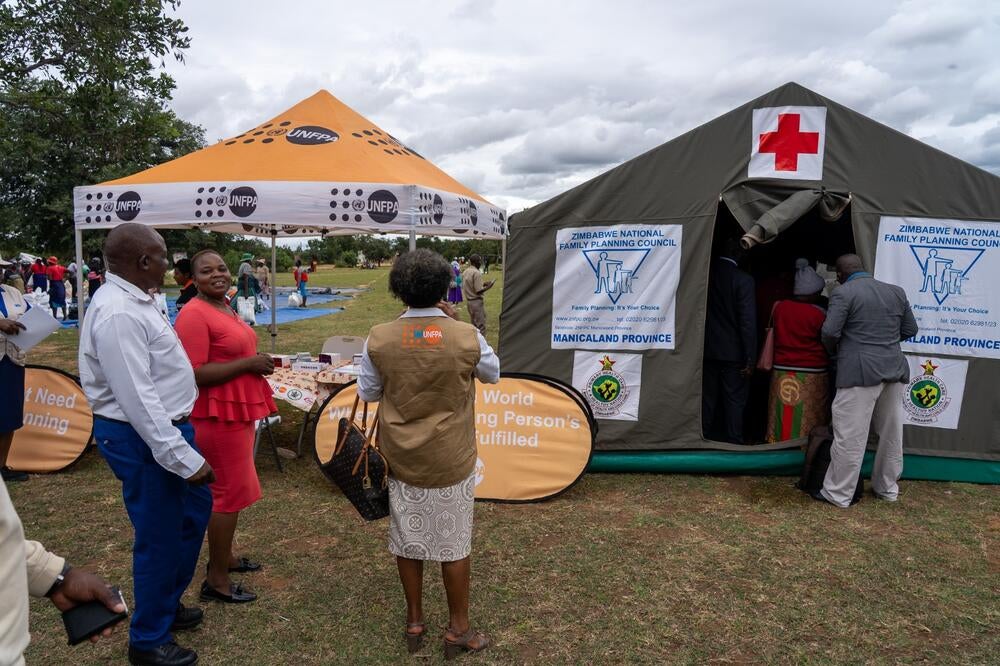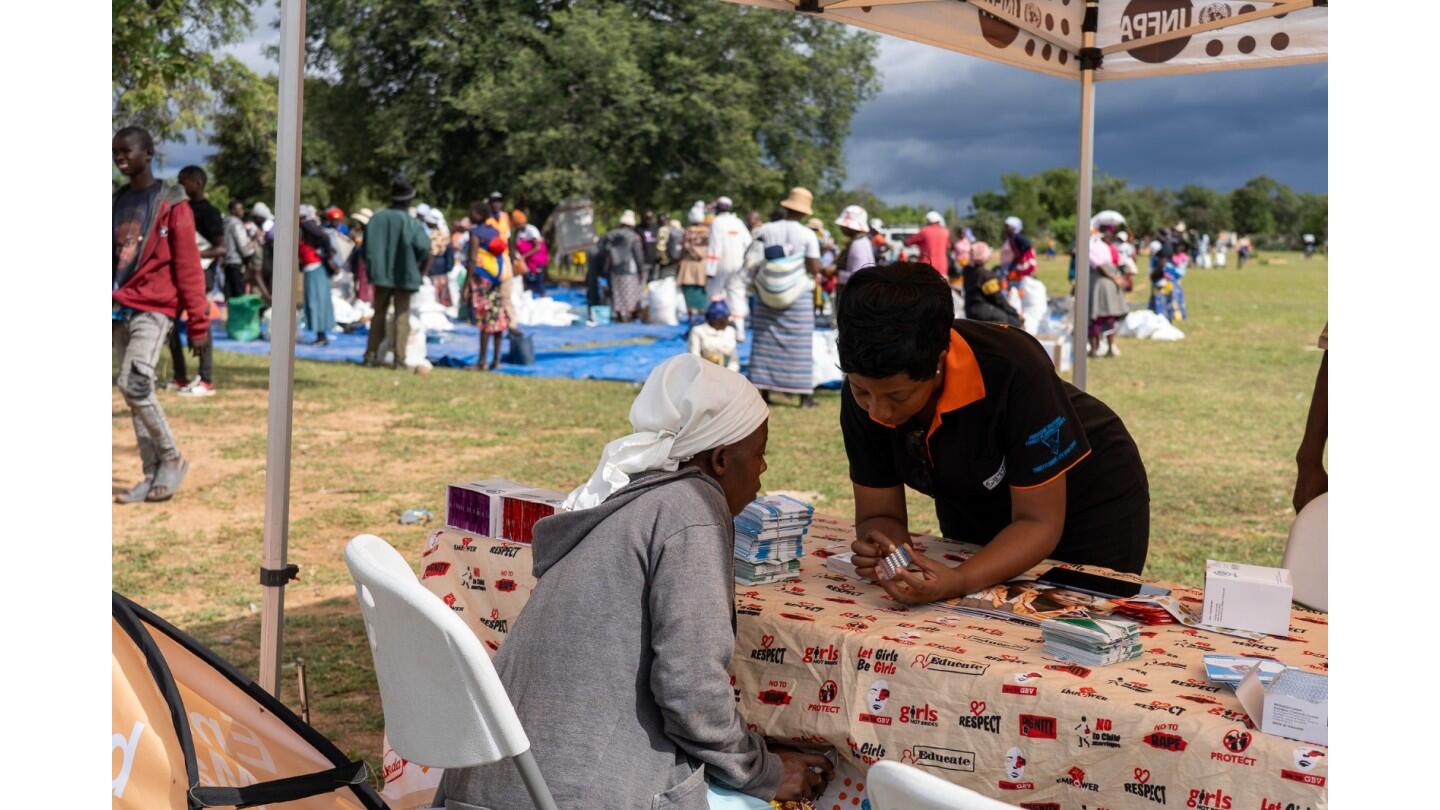
On March 11, 2025, UNFPA Zimbabwe joined the World Food Programme (WFP) and the Government of Zimbabwe at a food distribution event in Buhera’s Madzivire Ward 15, Manicaland Province, as part of the ongoing 2024-2025 Lean Season Assistance Programme. This high-level engagement, attended by the UN Resident Coordinator and senior government officials, demonstrated a collaborative effort to provide life-saving food assistance while integrating critical sexual and reproductive health and gender-based violence services.
A Holistic Approach to Humanitarian Assistance
The Lean Season Assistance Programme, implemented by WFP in partnership with the Government of Zimbabwe, aims to mitigate food insecurity during the lean season by providing food assistance to vulnerable households. With approximately 1,000 households benefitting from food distribution at the Buhera site, UNFPA leveraged this platform to expand access to essential health services.
UNFPA partnered with the Ministry of Health and Child Care (MOHCC) and the Zimbabwe National Family Planning Council (ZNFPC) to provide SRH services at the distribution site. These services included family planning, HIV testing, health education, and GBV awareness-raising to ensure that communities not only receive food aid but also critical health services and information.
Bridging Food Security and Health Services
UNFPA Representative, Ms Miranda Tabifor emphasized the importance of an integrated approach:
"Food security and health go hand in hand. Women and girls in vulnerable communities often face increased risks during crises, including limited access to reproductive health services and a rise in GBV cases. By collaborating with WFP, we ensure that communities receive both immediate relief and long-term support for their well-being."
The visit also underscored the UN’s commitment to addressing Protection from Sexual Exploitation and Abuse (PSEA) by engaging communities in discussions on their rights and available reporting mechanisms.
Strengthening Partnerships for Sustainable Impact
By integrating SRH and GBV services into food distribution programs, UNFPA and WFP reaffirm their commitment to a holistic humanitarian response that meets the diverse needs of affected communities. Moving forward, UNFPA will continue to explore innovative ways to expand access to reproductive health services and promote gender equality in humanitarian settings.


